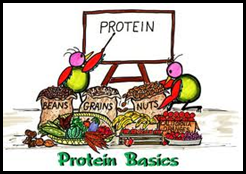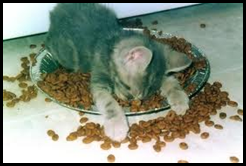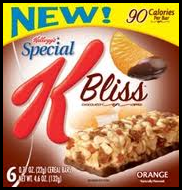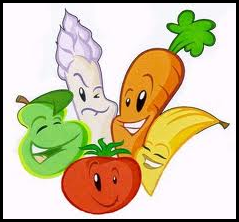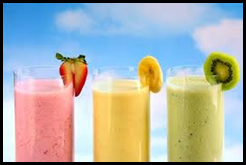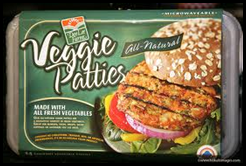I know that many of you are considering a vegetarian lifestyle.
I myself have given up beef, poultry and pork. I call myself a ‘flex-a-tarian’ meaning that I’m ‘flexible’ with my food choices. I’ll eat meat on occasion, but I feel best eating eggs and fish as my main protein sources. (I eat lots of Greek yogurt too, I’m gonna kiss the next Greek I meet for making this!) I’ve made my choices based on how I feel and not necessarily for ‘ethical’ reasons to avoid meat, although I know there are plenty.
In any case, it’s worthwhile to highlight some things to AVOID when you consider the vegetarian lifestyle. I know several people that have actually gained weight since changing their diet to strictly vegetarian, which is likely the opposite of their goals.
The main reason for this weight gain is because in an effort to lose ‘meat’ out of the diet, you have to eat something. Turns out you end up eating more carbohydrates and fat since it’s more difficult to get protein in.
First of all, let me emphasize the NEED for protein. Yes, it helps in the repair of muscle and if you’re doing resistance training you’ll need protein to help repair and build muscle, but there’s another SUPER important reason.
Protein helps to stabilize blood sugar. When you eat carbs, your body will release insulin to lower the resulting blood sugar from ingesting those carbs. You will never lose weight with insulin floating around your blood. Insulin generally tells your body to burn up that blood sugar as immediate energy, but more likely, insulin tells you body to store those calories for a rainy day: more junk in the trunk.
So, you want to avoid those carb induced insulin spikes. One way to do this is to eat some protein and fat along with any carbs. This slows down the conversion of that food to blood sugar and the result is a less insulin released, less fat storage.
You’ll notice an improvement in how you feel when you moderate your blood sugar as well.
How many times have you eaten a huge meal and then wanted to take a nap? Insulin
is the culprit.
How many times have you eaten lots of carb-type foods and then shortly after you have no energy and you’re starving again? Insulin is the culprit again.
Insulin is really getting a bad wrap here. We need insulin, in fact, without it we become diabetic. But we need to control it. When it gets out of whack, that’s when we run into problems.
Okay, back on track here….what about the foods vegetarian wanna-be’s should avoid?
Here are three foods that everyone should avoid, not only vegetarians. You’ll see the main message here is to READ LABELS and avoid excess sugar, sodium and fat. Your goal is to increase protein intake and these foods are not your best choice.
Junk food cereals and bars
Cereals and bars are a marketers dream. Look at the labels and you’ll see a ton of misleading and confusing information. Many cereals and bars are loaded with tons of sugar containing between 9-26 grams of sugar per serving with little to no protein, and only 1-3 grams of fiber. Basically, these cereals and bars don’t have enough healthy fiber, goods fats, or protein, and they contain too much sugar in the form of refined carbs.
Look for a cereal with no more than 10 grams of sugar per serving. And check out the serving size, often the savvy marketer will list a very small serving size to give the illusion of low sugar.
A few cereals to avoid include most ‘crunch’ or ‘cluster’ type cereals, most children’s cereals (which have as much sugar as a chocolate bar) and even the seemingly ‘healthy’ choices like Raisin Bran and Kashi Crunch which have over 15 grams of sugar.
Your best choices are oatmeal, Cheerios, shredded wheat types. Check the ingredient labels!
As for bars, most of full of refined carbs, fat and at best, a little protein powder sprinkled in. For the most part, they aren’t much better than a candy bar. Seriously. What about fresh fruit or veggies as a snack?
You’d be surprised at how much protein is in green leafy veggies. I know that a purse full of kale isn’t the most practical solution, but when you can eat fruit or veggies or other healthy alternatives, stay away from these bars!
Smoothies
In the fast food market, a ‘smoothie’ seems like a sensible choice for a meal replacement or snack, especially if you get some protein thrown in. Not so.
Check the nutritional break down because often you’ll find that you have upwards of 100 grams of sugar. Don’t kid yourself that the sugar is coming from fruit, its still sugar. And more often than not, the sugar comes from high fructose corn syrup from sherbet or frozen yogurt.
Meal replacement drinks are the same. They are low on nutrition and high in sugar and even fat. Some of these drinks have some protein, but secondary to carbs on the nutrition list. They are intended for those that are trying to gain weight, but even if you fall into this category, you can do so with more nutritionally dense food than these.
If you want a smoothie, make it yourself with a blender, a quality protein powder, flax oil and fresh fruit. Don’t go overboard on the fruit either; would you really eat two to four full pieces of fruit? Not likely, use fruit for flavor and nutrition, but remember that fruit has calories too. Avoid the use of fruit juices in your smoothies, use water or skim milk and ice.
Veggie patties
My issue with a veggie patty isn’t so much with the actual veggie patty, but with the total amount of carbs you eat with the veggie patty and an entire bun. Most women would be better off having an open-faced veggie patty to reduce total calories. Load up your veggie patty with more veggies instead for a healthy meal. In addition, many veggie patties are loaded with sodium. Your TOTAL sodium intake daily should be under 1500 mg, so again, read the label!
Excess carbs
Becoming a vegetarian is challenging. You need to educate yourself to ensure that your protein requirements are met. Most start off this journey with eating too many carbohydrates, even healthy carbs can cause weight gain. For example, rice and beans are an excellent source of protein, but also high in carbs, so checking serving sizes is imperative. It’s important to be aware of what’s going in your mouth to maximize health and well being, whether you’re thinking of being a vegetarian or not.







